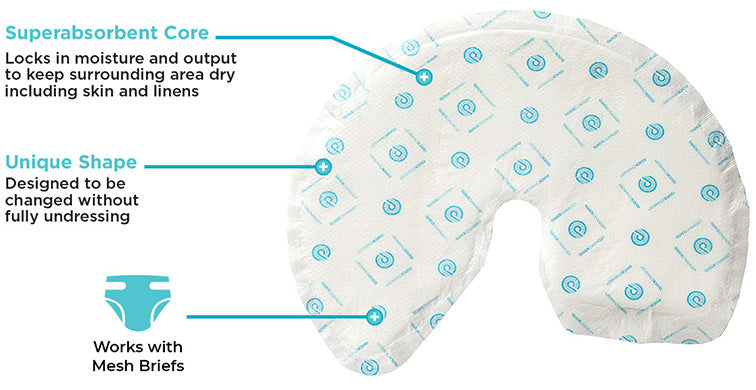QUICKCHANGE®
QuickChange® is a one-size-fits-all professional urine management solution for men, designed to support healthcare providers in maintaining patient dignity and preventing complications such as CAUTI, IAD, and pressure injuries. Unlike traditional urine collection systems, QuickChange® provides a non-invasive, fast, and hygienic alternative. Eliminate one of the caregiver’s biggest challenges and concerns while reducing injury, stress, and time.


Trusted by Leading Facilities Across the US:






Easy-to-Use Male Urine Management Solution
QuickChange® is simple to apply and remove, even for patients with limited mobility. Its intuitive design reduces training time, ensuring staff can deliver effective care from day one. You can learn how to do it correctly through our comprehensive tutorials.
Fast & Easy To Change
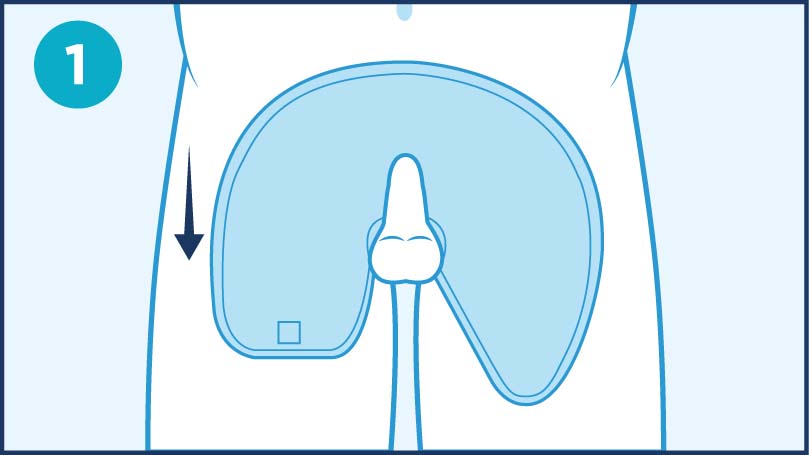
Place QUICKCHANGE onto body, absorbent/ white side facing up
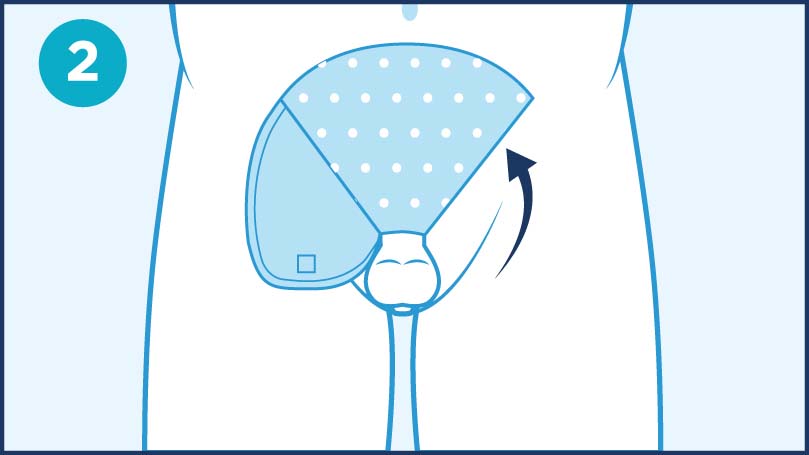
Fold pointed flap around the penis
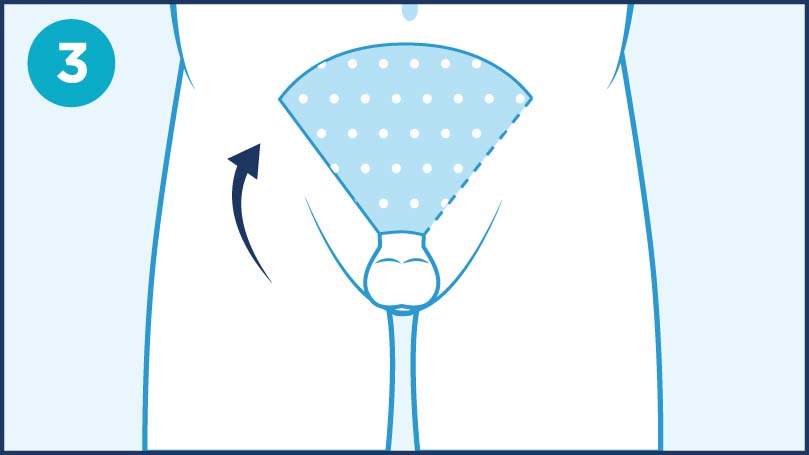
Wrap hook-and- loop side around to secure QUICKCHANGE
Additional application methods available for patients with retracted penis, enlarged scrotum, etc.
Register to set up a wholesale account so you can purchase directly from us.
Key Benefits of Our Professional Urine Management Solution
QuickChange® represents the new generation of male urine management solutions. It’s dignified, efficient, and scientifically proven. The main benefit of our product is empowering professionals to provide excellent patient care while reducing risks, workload, and costs.

Maintain Skin Integrity
QuickChange’s design allows air flow to at-risk skin areas, reducing heat buildup and creating a healthy microclimate. Its advanced absorbing layers wick any moisture away from the skin, keeping it dry. This well-thought-out and clinically tested design helps to protect skin integrity, reducing irritation and breakdown.
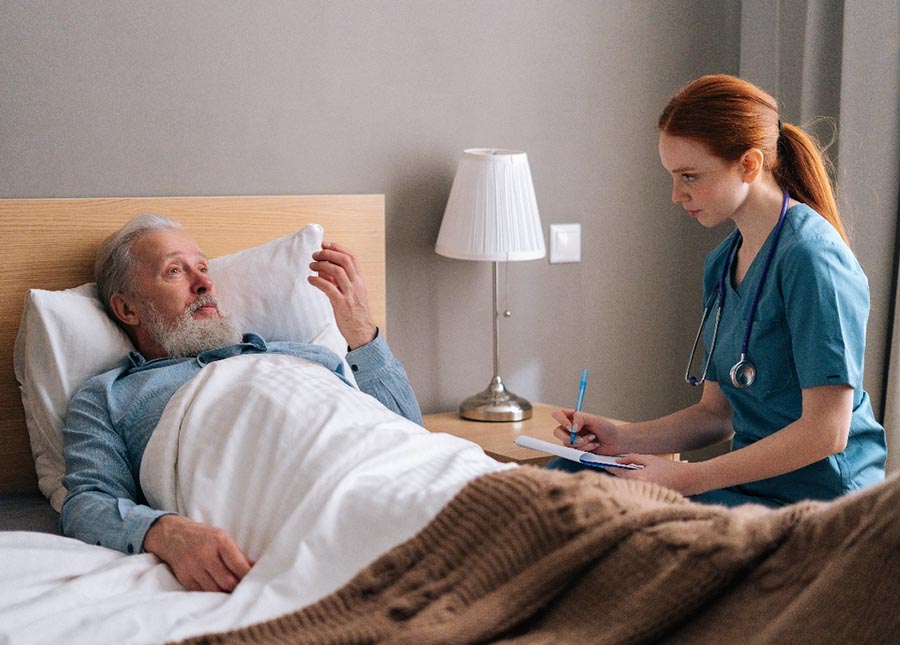
Reduce CAUTI by Avoiding Catheters
The most effective way to reduce catheter-acquired UTIs is to simply avoid them when possible. Our urine management solution is a viable and comfortable catheter alternative for urinary containment. When a Foley is clinically required, professionals can use the QuickChange® Wrap in conjunction to reduce the risk of fecal migration by creating a physical barrier that further lowers infection risks.

Minimize Staff/Patient Contact
Our urine management solution for men simplifies the changing process, enabling a single caregiver to complete changes quickly and safely. With no log rolling required, this design minimizes staff effort and patient discomfort, making incontinence care easier with minimal patient contact, regardless of the patient’s anatomy or weight.
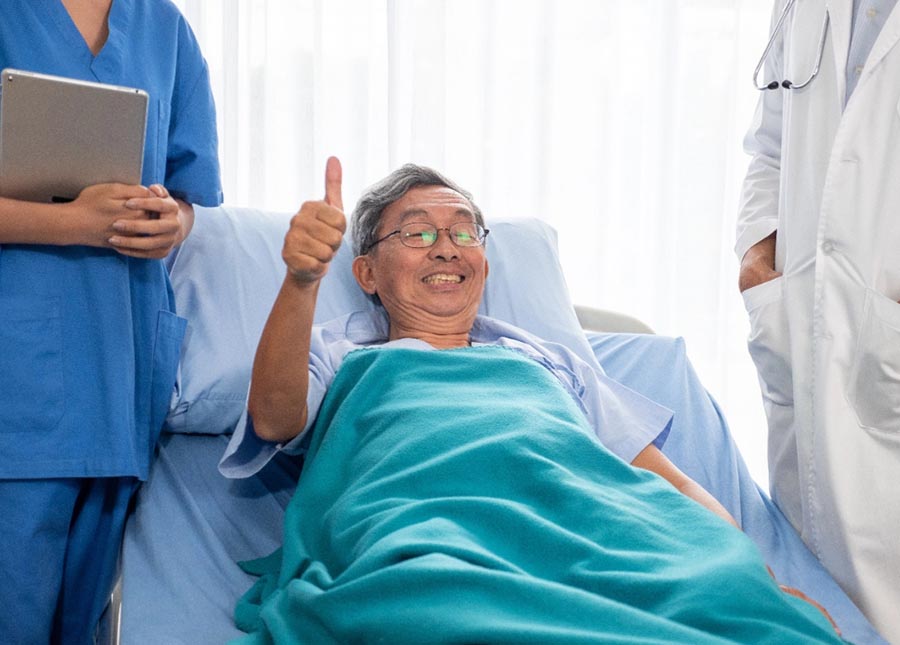
Reduce Incontinence-Associated Dermatitis (IAD)
Incontinence-Associated Dermatitis affects:
- Up to 42% of hospitalized adults
- 83% of ICU patients
- 41% of residents in long-term care*
By keeping urine away from the skin, our professional urine management solution helps reduce the risk of IAD, ensuring comfort and quick healing for vulnerable patients.
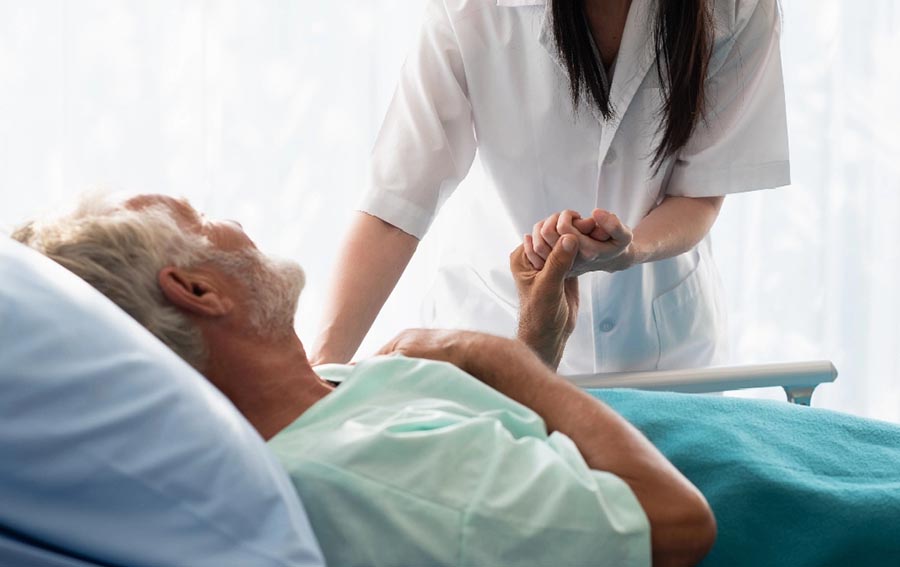
Lower Facility Costs and Accounting
Facilities using QuickChange® can significantly save costs through reduced catheter use, lower inventory needs, and fewer skin-related treatments.
Typical cost comparison:
- Traditional urine collection system with catheters — $15-$25 per catheter.
- QuickChange® urine management solution for men — $1 per wrap.
The result is lower supply cost, greater operational efficiency, and, what’s most important, improved patient outcomes.
Register to set up a wholesale account so you can purchase directly from us.
Clinical Studies

Mayo Clinic Study
QUICKCHANGEs Are 100% Clinically Successful In Preventing Pressure Injuries

Wound, Ostomy and Continence Nurses (WOCN) Society
Assessment, Selection, Use, and Evaluation of Body- Worn Absorbent Products for Adults With Incontinence
Risks of Poor Incontinence Management
Catheter-associated urinary tract infection (CAUTI)
$5,019 to $22,568
Estimated per-patient cost of CAUTI1
Pressure injury
$20,900 to $151,700
Estimated per-patient cost per case of pressure injury2
Incontinence-associated dermatitis (IAD)
High prevalence
Found in up to 42% of hospitalized adults, 83% of ICU patients, 41% of residents in long term care3
- AHRQ, Agency for Healthcare Research and Quality, Estimating the Additional Hospital Inpatient Cost and Mortality Associated With Selected Hospital-Acquired Conditions, Available at https://www.ahrq.gov/hai/pfp/haccost2017-results.html. Accessed August 31, 2020
- Famorca Mary M., MAN, RN, WCC, COCN, CCCN Peworski, Charles, BSN, MSN, RN, Mayo Clinic AZ, Phoenix Arizona, QuickChange Wrap to Prevent HAPI From Use of Foley Catheter and Incontinence. Accessed April 13, 2020.
- Ermer-Seltun, J. Practical Prevention and Treatment of Incontinence-Associated Dermatitis - a Risk Factor for Pressure Ulcers. Ostomy Wound right to correct any errors that may occur within this brochure. Copyright 2020.
Introduce QUICKCHANGE to your regular routine to improve patient health and help avoid these costly issues.
Upcoming Events
Real Stories from Real People
In a time when the use of indwelling urinary catheters is decreasing, the QuickChange wrap is a catheter alternative to prevent CAUTI while also addressing IAD, pressure injury, and the need to change the bed linens frequently.
Additional Uses of Our Urine Management Solution
The benefits of our product can go beyond traditional urine management. It offers versatile uses that can help you enhance hygiene and comfort across a range of clinical and caregiving cases. Its flexible design and absorbent capabilities make it a valuable tool to support patient care in multiple contexts.
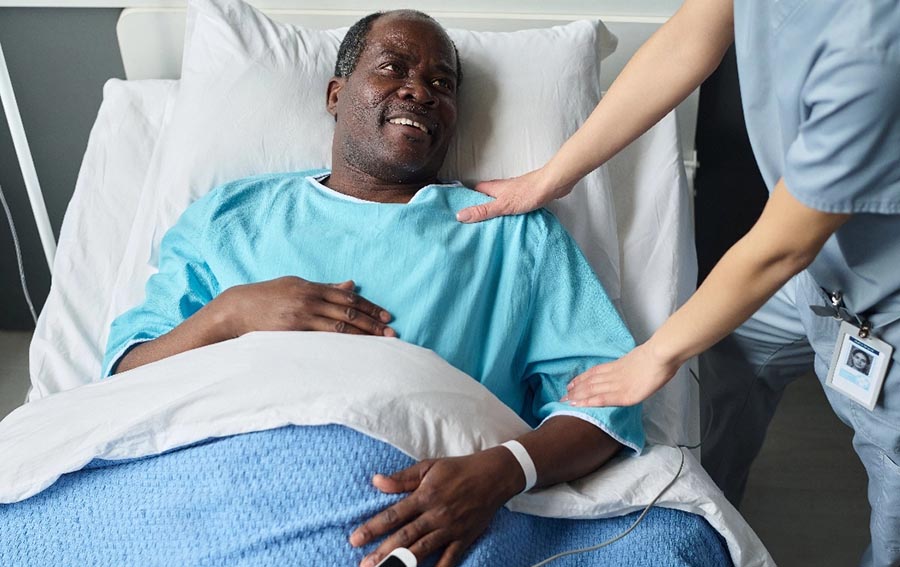

CDIFF
QuickChange® can serve as a protective physical barrier between urinary catheters and bowel movements (female patients included). In this use, it helps to prevent cross-contamination.
Ostomy Stomas & Fecal Management
The product wraps easily around and over stomas to help manage output during cleansing and preparation for new patches/pouches/bags, as well as aiding the absorption and reduction of leakage. This feature improves hygiene, containment, and comfort.
Intermittent Urine Management
An effective solution in situations without restroom access, such as:
- Pre- and post-operative care
- Imaging procedures
- Dialysis and hyperbaric treatments
- Rehabilitation sessions
Our wrap ensures reliable urine containment and skin protection wherever mobility or access is limited.
Skin Irritation & Perspiration Control
QuickChange® product reduces discomfort, sweating, and the risk of infection by functioning as an absorbent barrier in places that are prone to wetness or friction, such as under the breasts (inframammary folds) or between gastric folds.
